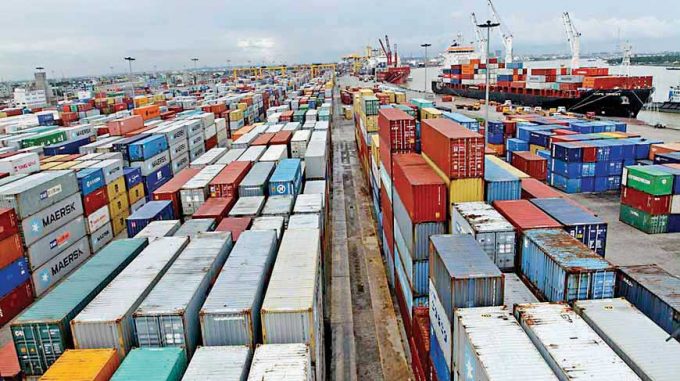Capture of MSC Aries will further drive up Indian export costs
With heightened geopolitical tensions sparked by the Iran-Israel faceoff, Indian exporters are again staring at ...

Out of 10 designated jetties for handling container vessels at Chittagong port, two remained vacant on Tuesday, while between one and three jetties have been empty for almost every day this month as lower number of vessels arrived due to a significant fall in import volumes.
Normally Bangladesh’s primary port faces container stockpiles in its yards and prolonged vessel congestion at the outer anchorage of the port.
However, this has changed since the war in Ukraine began, leading to the declines in import and export goods as the country’s foreign currency reserve has also fallen drastically.
Vessels are now taking berth at port jetties directly without staying at the outer anchorage. The container yards on Wednesday had a stock of 28,652 teu against the storage capacity of 53,518 teu.
According to Chittagong port’s berthing report on 18 September, two jetties were empty and between 3 September and 14 September one-to-two jetties were vacant each day.
Businesses say the fall in ship arrival clearly indicates a significant fall in imports, especially raw materials necessary to feed its vast textile manufacturing industry.
Port data shows that from January to August this year, the port handled 811,000 teu of import containers, compared to 956,000 teu in the same period last year, a decline of 15.2%.
In the same period, the port handled 480,000 teu of export containers against handling 571,000 teu of outbound boxes in same period in 2022. The export container handling thus fell by 16%.
However, since February 2022 the Bangladeshi Taka has depreciated by around 25% against the US dollar which means export data in terms of prices in certain months actually show an increase year-on-year, businesses say.
Mahbubul Alam, president, the Federation of Bangladesh Chambers of Commerce and Industry (FBCCI), said both imports and exports had lessened since the war begun in Ukraine, leading to the empty jetties.
“Due to the government’s austerity measures, opening letters of credit remained suspended or discouraged by the banks in the case of non-essential products,” he said.
Mr Alam said raw materials are necessary to run wheels of the factories. “We are hearing from many factory owners that they are failing to open laden containers due to the dearth of US dollars.”
Syed Mohammad Arif, chairman of Bangladesh Shipping Agents Association (BSAA), said the government has been discouraging businesses to import many items.
And as imports fell, fewer vessels have been needed to carry the present volume of imports, he said.
Mr Arif added that the fall in ship arrivals in Chittagong is causing financial loss for vessels deployed in this route.
Comment on this article